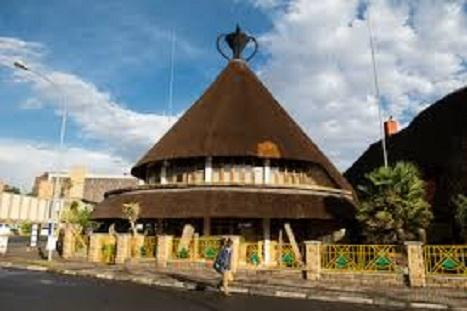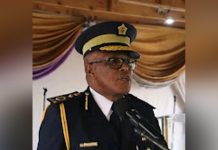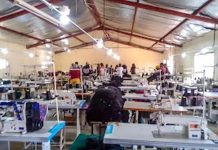Africa-Press – Lesotho. The High Court had on Wednesday dismissed the recusal application by the Director of Public Prosecutions (DPP) Advocate Hlalefang Motinyane against the
Chief Justice Sakoane Sakoane to recuse himself in the ongoing treason case. The prosecution had accused the Chief Justice of biases towards the crown and
impartiality to preside over the case. The prosecution further contended that this perception is also shared by the victims and the public. Some of the DPP’s misgivings against Chief Justice are that he declined the
postponement of the case; he cast “negative aspersions” against particulars Advocate Shaun Abrahams provided to the defence team; denying Advocate Abrahams
from resuming as the lead prosecutor after conducting the Speedy Court Trials Act No.9 of 2002. The crown further accused him of “being dismissive” when told that the recusal
application would be submitted and told the defence counsel that he would not entertain further postponements after hearing the recusal application. The
ruling upholds that: “The right to be tried by an impartial judge is of fundamental importance in our system of justice. This right is imperiled (sic)
by words and actions of a judicial officer which creates or demonstrate a reasonable apprehension or perception of bias. ” On January 10 which was a date marked for the commencement of the trial, Advocate
Abrahams was absent and the DPP had instructed Advocate Hopolang Nathane to move the postponement application and when he withdrew after the debate with
the Chief Justice and the implications he could face as per the provisions of the Speedy Court Trials Act, 2002. This act among others says that if the lawyer is engaged in a matter such a counsel
should continue with the matter to finality and can be absent only for valid reasons failing which a fine of M5 000.00 may be imposed against such lawyer if
found guilty. Advocate Naki Nku was asked if she will be able to carry on prosecuting the case, she told the court that she was not authorised to but asked for an adjournment to
take directions from the DPP to which she told the Judge that she will take over as lead prosecutor. The Chief Justice had also threatened to dismiss the case “for want of prosecution”
saying the case has taken too long and that the accused have remained in custody for about five years without being charged. On January 17 when the matter was to continue, Advocate Abrahams was back and told the court that he
is back as lead prosecutor. The court then told him that the DPP had since appointed the new lead prosecutor. Also, the DPP in her affidavit had stated that Advocate Abrahams was in South
Africa engaged in another case in that country and would not be present to prosecute the case. The DPP had also filed an affidavit that Advocate Abrahams
would no longer be involved in the case as she had appointed Advocate Hopolang Nathane King’s Counsel (KC) and Advocate Nku will lead assisted by the former.
Upon interaction with Advocate Abrahams, the Chief Justice sought to invoke the powers of the Speedy Courts Trial Act, 2002 where the DPP and Advocate Abrahams
were sworn in and testified as witnesses. Part of their evidence conflicted, the DPP referred to pending execution of the arrest of accused number five being Hon Mothetjoa Metsing who remains at large, this Advocate
Abrahams had agreed to and disagreed with the statement that the police had told the court that they were doing “everything to execute the warrant of arrest”.
The Chief Justice found DPP to have committed perjury while he said Advocate Abrahams had committed “professional misconduct”. “This behaviour of both Mr.
Abrahams and the DPP shows the cavalier manner in which they treat this court. They want this court to accept what they told it in the application for postponement and the appointment of Miss Nkuas
lead prosecutor. Their behaviour as officers of the court is completely unacceptable. “It is the DPP’s duty to see to it that Crown counsel and retained counsel exercise
her delegated powers properly, conscientiously and efficiently by attending court at all times and not at their convenience. The Constitution provides a
template for the DPP’s exercise of power by her delegates and retained counsel. Section 6(5) enjoins them to prosecute cases with due expedition. Section 12
obligates them to respect [the] fair trial rights of accused persons. Such rights include avoiding [bringing] frivolous applications for postponements by
reliance on false information. “Any lawyer found wanting in upholding the ethical standards of the legal profession is liable to disciplinary action. A lawyer who deliberately places before court misleading information or makes a contention which he knows to be false is not fit to remain a member of the profession” reads the judgement.
For More News And Analysis About Lesotho Follow Africa-Press






